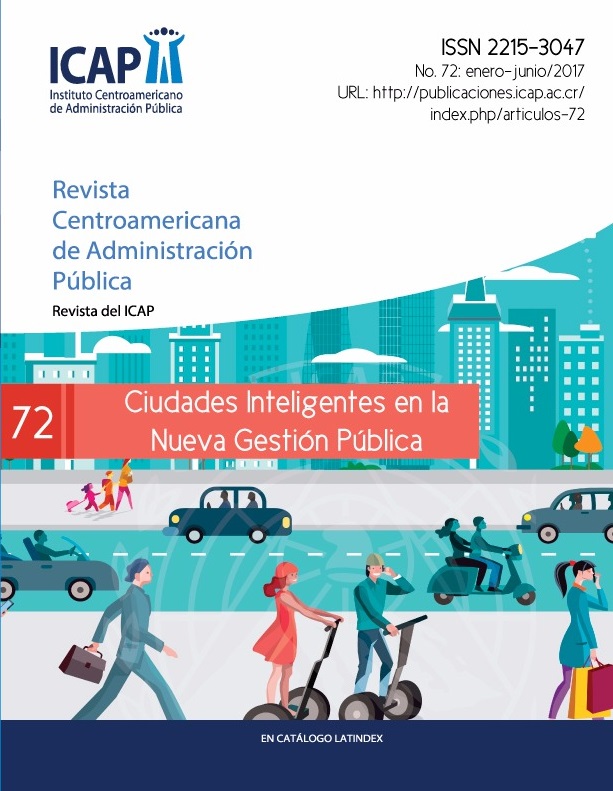No. 72 (2017): Intelligent Cities in New Public Management

Since its conception, the Central American Institute of Public Administration has acted as a driving force for the updating of public management issues in Central America, which is why it has been concerned with promoting spaces where research is a reflection of the changes taking place in the region, the institution has opted to go further and seeks to discuss innovative topics that promote the evolution of Central American models and allow the region to know and adapt to the growing changes that are being experienced, an example of this is the theme of this magazine that deals with Smart Cities and the spaces that these offer in order to generate an evolution in the models of urban management in the region.
Smart Cities open the doors to different forms of management, seek to create environments where technology is a tool to solve citizens' problems and make available to their inhabitants the expanded use of ICTs, offering better spaces for urban planning and mechanisms to make the governmental function more efficient, incorporating performance measurements and indicators.
The bet of smart cities is to apply existing technology to see beyond the benefits that are enjoyed today, it is a bet to adjust the technological inputs to improve the quality of life of people and build more equal and integrated societies, this is a long-term premise that needs construction and discussion, which is why it is imperative that from the academy to promote discussion and dissemination of the subject.
For this reason it is important to know the benefits and propose the adaptability of these models for the Central American reality, in addition to studying how to manage the existing spaces in order to aim in the long term to the establishment of this type of approaches that result in better levels of development and function as mechanisms of integration from the development of a city, where the more equal benefits that it attracts will promote dynamism in the country and subsequently in the region, promoting new mechanisms of knowledge, good practices and more efficient management that will be made available to other Central American cities, to offer the opportunity to grow from local efforts that become regional results.
Thus, the Central American Journal of Public Administration number 72 is structured as follows: the first section presents the editorial on the importance of smart cities for public management models in Central America, followed by articles that address the topic and study elements such as the contribution of public-private partnerships to these mechanisms, tools for the management of smart cities and notes on opportunities for the construction of Smart Cities. Subsequently, a section of documents is included, where various topics on Public Administration and Management are addressed. Finally, bibliographical references and publication guidelines for authors are presented.










